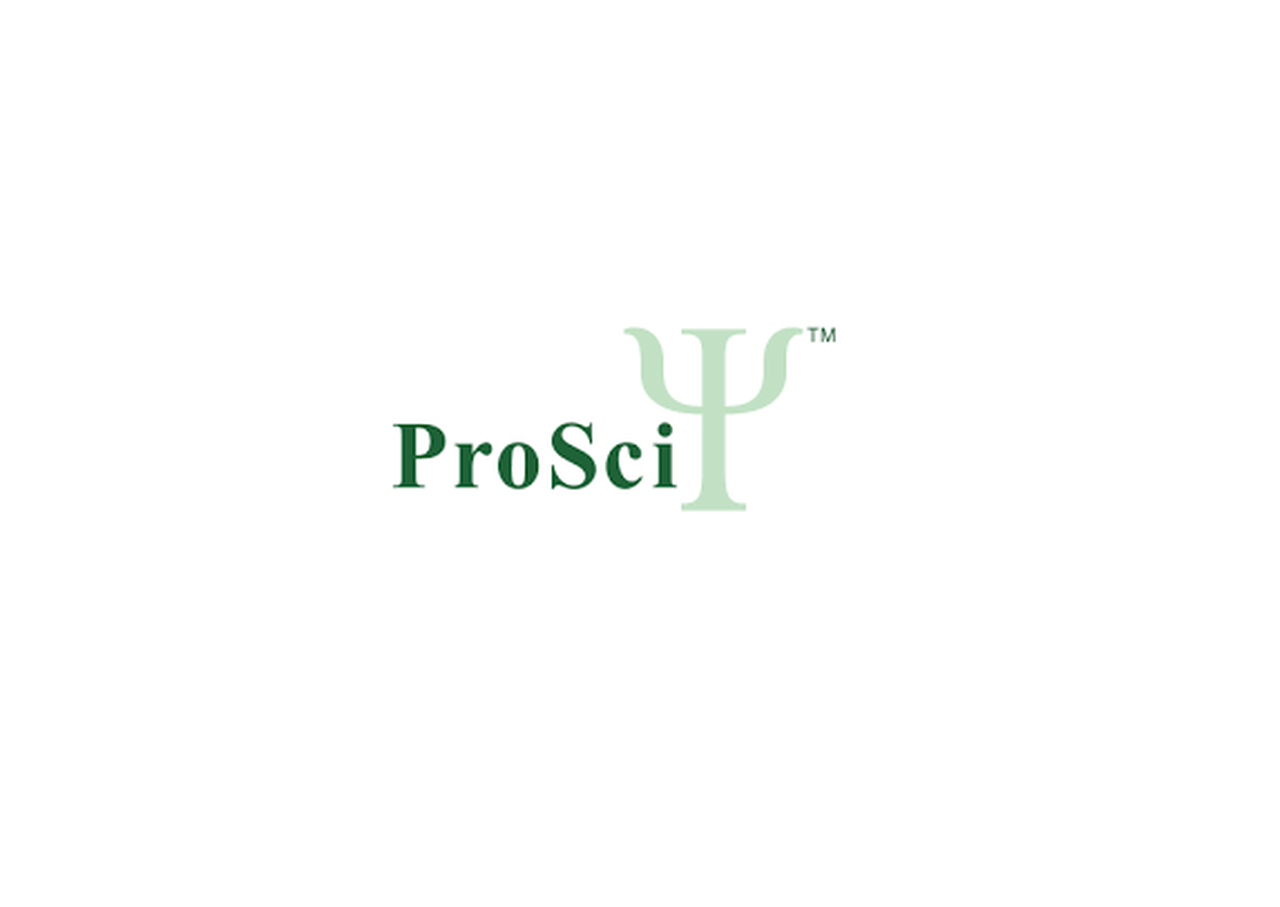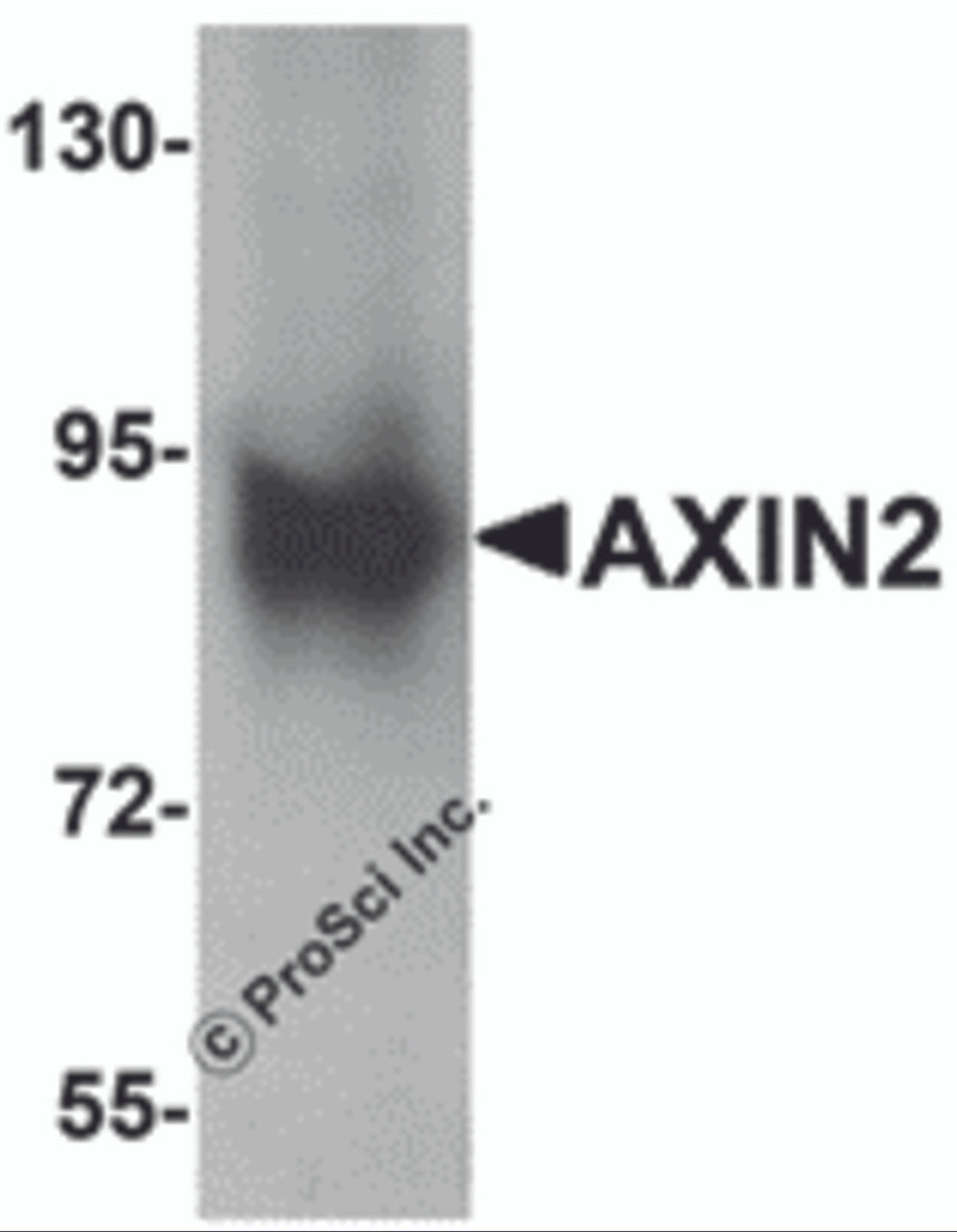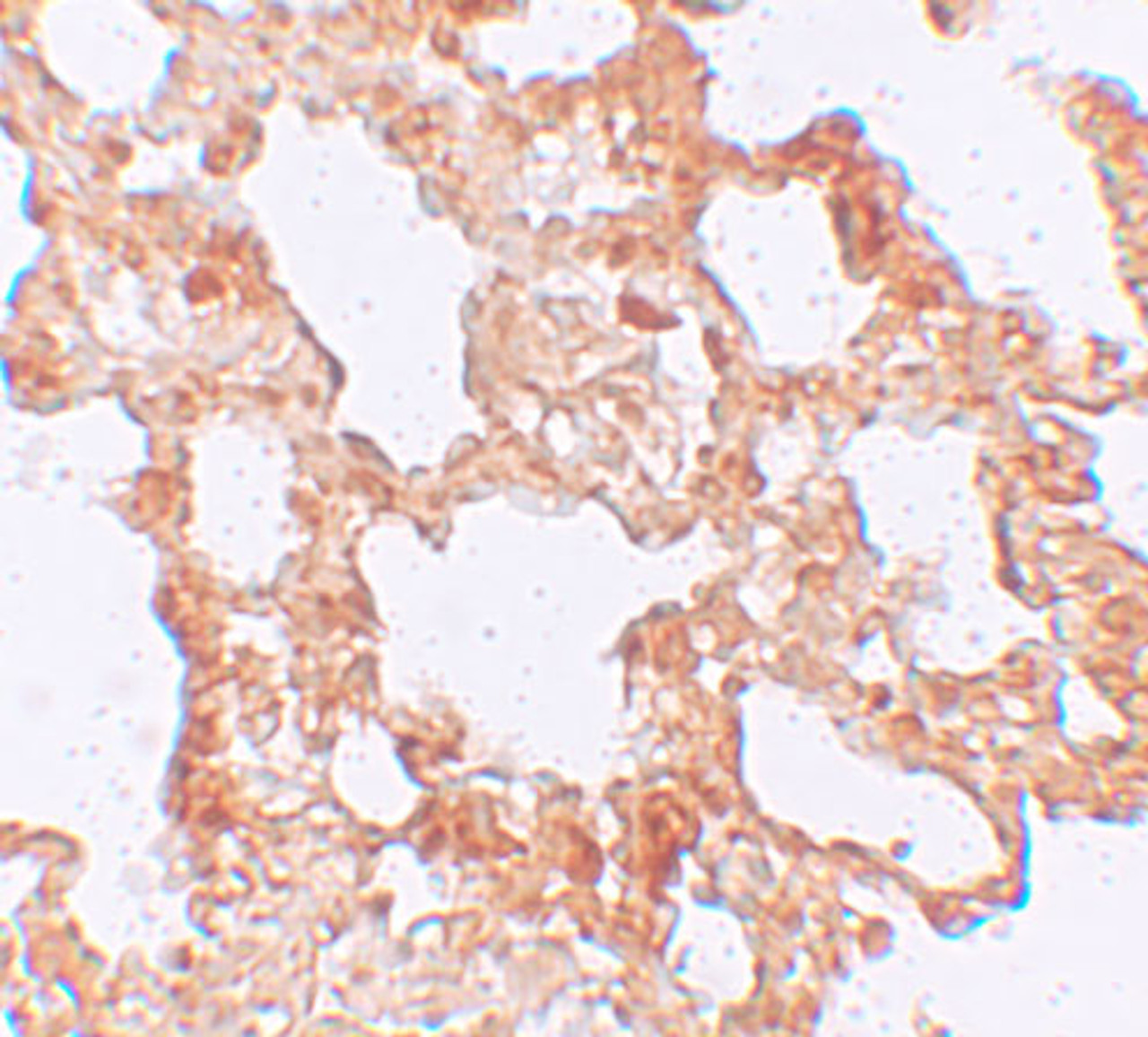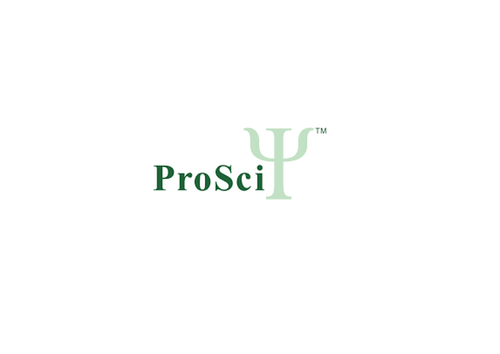Product Description
AXIN2 Antibody | 6163 | ProSci
Host: Rabbit
Reactivity: Human, Mouse, Rat
Homology: Predicted species reactivity based on immunogen sequence: Chicken: (85%)
Immunogen: AXIN2 antibody was raised against a 20 amino acid synthetic peptide near the carboxy terminus of human AXIN2.
The immunogen is located within amino acids 780 - 830 of AXIN2.
Research Area: Cancer, Cell Cycle
Tested Application: E, WB, IHC-P, IF
Application: AXIN2 antibody can be used for detection of AXIN2 by Western blot at 1 μg/mL. Antibody can also be used for immunohistochemistry starting at 5 μg/mL. For immunofluorescence start at 20 μg/mL.
Antibody validated: Western Blot in mouse samples; Immunohistochemistry in mouse and rat samples and Immunofluorescence in mouse and rat samples. All other applications and species not yet tested.
Specificiy: AXIN2 antibody is predicted to not cross-react with AXIN1. At least four isoforms of AXIN2 are known to exist; this antibody will recognize all four.
Positive Control 1: Cat. No. 1402 - Mouse Lung Tissue Lysate
Positive Control 2: N/A
Positive Control 3: N/A
Positive Control 4: N/A
Positive Control 5: N/A
Positive Control 6: N/A
Molecular Weight: 85, 93 kDa
Validation: N/A
Isoform: N/A
Purification: AXIN2 Antibody is affinity chromatography purified via peptide column.
Clonality: Polyclonal
Clone: N/A
Isotype: IgG
Conjugate: Unconjugated
Physical State: Liquid
Buffer: AXIN2 Antibody is supplied in PBS containing 0.02% sodium azide.
Concentration: 1 mg/mL
Storage Condition: AXIN2 antibody can be stored at 4˚C for three months and -20˚C, stable for up to one year. As with all antibodies care should be taken to avoid repeated freeze thaw cycles. Antibodies should not be exposed to prolonged high temperatures.
Alternate Name: AXIN2 Antibody: AXIL, ODCRCS, Axin-2, Axin-like protein, Axil
User Note: Optimal dilutions for each application to be determined by the researcher.
BACKGROUND: AXIN2 Antibody: Like the related protein AXIN1, AXIN2 is thought to play an important role in the regulation of the stability of beta-catenin in the Wnt signaling pathway. In mouse, AXIN2 organizes a multiprotein complex of APC (adenomatous polyposis of the colon) , beta-catenin, glycogen synthase kinase 3-beta, and AXIN2, which leads to the degradation of beta-catenin, which is thought to be an important event in the genesis of a number of malignancies. The AXIN2 gene has been mapped to 17q23-q24, a region that shows frequent loss of heterozygosity in breast cancer, neuroblastoma, and other tumors. Mutations in this gene have been associated with colorectal cancer with defective mismatch repair.
 Euro
Euro
 USD
USD
 British Pound
British Pound
 NULL
NULL
















